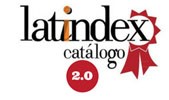Impact of Business Compensation: its Influence on the Attraction and Retention of the New Generations
DOI:
https://doi.org/10.69890/hallazgos21.v7i3.596Keywords:
Business compensation, generations, employees, VanguardAbstract
Currently, in companies, it is important to understand that the management of human talent is a key factor to guarantee the productive efficiency of the organization. Business compensation is a strategy that directly influences the relationship between the employee and the company; since its purpose is to motivate and encourage employees to obtain better performance from them. The objective of this study was to determine the influence that labor compensations have on the attraction and retention of multigenerational employees (X, Y, Z), for which a field investigation was applied through surveys of the economically active population (PEA), by generations, belonging to the Ambato canton, province of Tungurahua. The results showed that companies today do not present human talent management policies or use ambiguous compensation system models in relation to the potential and demands of the new generations, which means that the objectives of the collaborators are not aligned with those of the company. Therefore, it is important as organizations to be at the forefront of the work and personal expectations of employees, to establish formal management methods that involve the different generations, since the productive results of the company depend on the degree of satisfaction and cohesion that the collaborators have with it.
References
Andrade, X., Pisco, I., Quinde, L., & Coronel, C. (2020). El entorno generacional en la actividad productiva del Ecuador: Millennials. https://revistaindustrias.com/el-entorno-generacional-en-la-actividad-productiva-del-ecuador-millennials/
Durán Toledo, D. (2020). Importancia de la Gestión de Personas y Compensaciones, alineadas a los Objetivos Estratégicos Organizacionales. Gestión de las Personas y Tecnología, 13(39), 6-16.
El Universo. (2019). Mileniales serán el 75% de fuerza laboral en el 2025. https://www.eluniverso.com/noticias/2019/09/15/nota/7518460/mileniales-seran-75-fuerza-laboral/
Fonseca Machado , K. S., & Cruz Cuadra, E. E. (2018). Talento Humano: Sistema de compensaciones y prestaciones laborales. Universidad Nacional Autónoma de Nicaragua, Managua Unan Managua, 16-17.
Fry, R. (2016). Millennials overtake Baby Boomers as America’s largest generation. Pew Research Center. https://www.pewresearch.org/fact-tank/2020/04/28/millennials-overtake-baby-boomers-as-americas-largest-generation/
Grupo Up Spain. (2020). Reclutamiento: ¿Cuáles son las tendencias del 2021? . https://www.up-spain.com/blog/reclutamiento-tendencias-2020/
Herrero Blasco, A., Perello Marin, M., & Ribes Giner, G. (2018). Dirección de Recursos Humanos - Gestión de Personas. España: Editorial de la Universidad Politecnica de Valencia.
López Cabrales, Á., Pasamar, S., & Valle Cabrera, R. (2019). Fundamentos para la gestión estratégica de los recursos Humanos. UOC. https://www.editorialuoc.cat
Martínez, M. (2016). Ocuparán 35% de los millennials el mercado laboral en el 2020. El Economista. https://www.eleconomista.com.mx/empresas/Ocuparan-35-de-los-millennials-el-mercado-laboral-en-el-2020-20160525-0091.html
Sisternas, P. (2021). 4 generaciones de talento: diferencias y características. Sesame. https://www.sesamehr.es/blog/4-generaciones-de-talento-diferencias-y-caracteristicas/
Torres Flórez, D. (2019). Estrategia de compensaciones como herramienta de satisfacción laboral. GEON (Gestión, Organizaciones Y Negocios), 6(2), 4-9. https://revistageon.unillanos.edu.co/index.php/geon/article/view/181/178
Published
How to Cite
Issue
Section
License
Los artículos enviados a la Revista Científica Hallazgos21 deberán ser totalmente originales e inéditos.
Los autores son los responsables de los textos y las imágenes incluidas en los artículos y no necesariamente reflejan el pensamiento de la editorial o de la Pontificia Universidad Católica del Ecuador, Sede Esmeraldas (PUCESE).
Los autores disponen cederle a la Revista Científica Hallazgos21 todos los derechos inherentes para la edición, publicación y distribución o divulgación del mismo.
Se autoriza a las revistas firmantes de los acuerdos de Encuentros de Revistas Latinoamericanas para reproducir en parte o totalmente los artículos con la sola mención de la fuente claramente señalada.







